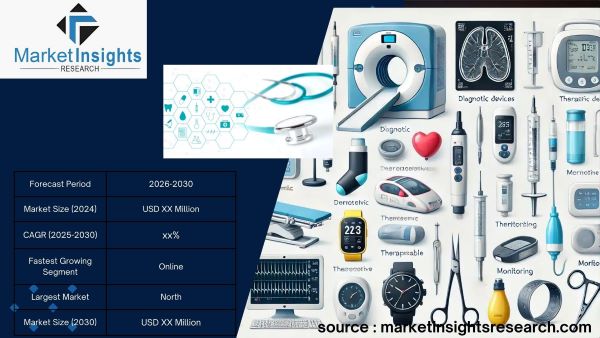| Forecast Period | 2025-2029 |
| Market Size (2023) | USD 282.14 Million |
| CAGR (2024-2029) | 8.25% |
| Fastest Growing Segment | Meibomian Gland Expression (MGX) |
| Largest Market | North America |
| Market Size (2029) | USD 441.99 Million |

Market Overview
Global Dry Eye Treatment Devices Market w
New and innovative technologies are providing more effective and precise solutions for patients suffering from dry eye.
Key Market Drivers
Rising Aging Population
The global healthcare landscape is witnessing a profound shift as the world's population ages. The aging demographic is giving rise to various health challenges, one of which is the increasing prevalence of dry eye syndrome. Dry eye syndrome is a common condition characterized by a lack of sufficient moisture and lubrication on the surface of the eye, leading to discomfort and visual disturbances. As the elderly population grows, the demand for dry eye treatment devices is on the rise.
Increased Screen Time
In today's digital age, our lives are becoming increasingly intertwined with screens, whether for work, entertainment, or communication. While the convenience of digital devices has revolutionized the way we live and work, it has also given rise to a concerning issue – increased screen time and its adverse effects on eye health. One such consequence is the growing prevalence of dry eye syndrome, which has led to the expansion of the global dry eye treatment devices market
Growing awareness about dry eye syndrome and its debilitating effects has led to an increase in patient visits to eye care professionals. Early diagnosis and treatment have become essential, contributing to the demand for dry eye treatment devices. The dry eye treatment devices market has benefited from continuous technological advancements, such as the development of cutting-edge devices that provide more effective and comfortable treatments. These include innovative methods for tear production stimulation, ocular surface hydration, and inflammation reduction.

Key Market Challenges
Complex Nature of Dry Eye Syndrome and
Dry eye syndrome is not a one-size-fits-all condition. It can result from various factors, such as age, hormonal changes, environmental conditions, and underlying health issues. Treating dry eye effectively requires a personalized approach, which poses a challenge for device manufacturers. Developing devices that cater to the diverse needs of dry eye patients is a complex task, as what works for one individual may not work for another.
Key Market Trends
Technological Advancements
Innovations
IPL devices use controlled flashes of light to open and clear the meibomian glands, which are responsible for producing the oily layer of the tear film. This technology has shown promising results in alleviating dry eye symptoms.

Segmental Insights
Technology Insights
Based
End Use Insights
Based on End Use, Hospitals & Clinics have emerged as the fastest growing segment in the
Regional Insights
Based on Region, North America have emerged as the dominant region in the Global Dry Eye Treatment Devices Market in 2023, holding the largest market share in terms of value. North America, particularly the United States, is home to a thriving medical technology industry. The continuous research and development efforts in the region have led to the creation of cutting-edge dry eye treatment devices. This technological edge has made North America a global leader in the market.
Recent Developments
- In December 2023, AMETEK, Inc., a global leader in the design, engineering, and manufacturing of diagnostic devices for eye care, announced an exclusive partnership with SBM Sistemi of Italy to distribute SBM’s imaging and dry eye assessment and treatment devices in the United States. This comprehensive range of devices offers flexibility and represents the most extensive family of ocular surface assessment technologies available. Among these devices, the Reichert-SBM IDRA stands out as the world’s most comprehensive system for supporting dry eye diagnosis. The IDRA evaluates all tear film layers (Lipid, Aqueous, and Mucin) and the Meibomian Glands to identify specific types of DED and provide personalized treatment recommendations based on the patient’s needs. Both the IDRA and OS1000 ocular surface evaluation devices were specifically designed for quick, painless, and non-invasive assessment of DED, delivering accurate, reproducible, and objective results. The Reichert-SBM OS1000 is an integrated diagnostic platform that combines a corneal topographer with DED assessment, enabling eye care professionals to conduct various DED and topography tests with a single device, thereby enhancing operational efficiency and minimizing capital expense for practices. Lastly, the Reichert-SBM DEM100-DSLC200 is an anterior imaging camera system compatible with a wide range of slit lamps, offering comprehensive DED assessment capabilities.
Key Market Players
- MiBo Medical Group
- Sight Sciences, Inc.
- Lumenis Be Ltd.
- ESW Vision SAS
- Johnson &Johnson Vision Care, Inc.
- Alcon, Inc.
| By Technology | By End Use | By Region |
- Broadband Light (BBL)
- Intense Pulsed Light (IPL)
- Meibomian Gland Expression (MGX)
- Combination (MGX+IPL)
| - Hospitals & Clinics
- Ambulatory Care Centers
- Others
| - North America
- Europe
- Asia Pacific
- South America
- Middle East & Africa
|



